LAS professors bring honor and recognition to the college.
Have an honor you'd like to share with the Office of the Dean? Email us.
November 2008
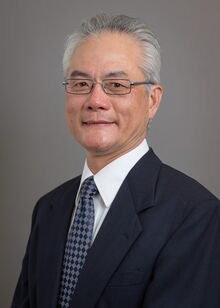
Feng Sheng Hu, professor and head of the Department of Plant Biology, earned the rank of Fellow of the American Academy for the Advancement of Science, for biological sciences. Hu was recognized for his contributions to the fields of paleoecology and paleoclimatology, notably for deepening our understanding of the development of boreal ecosystems through the Holocene.
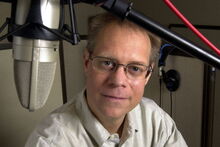
William Hammack, professor of chemical and biomolecular engineering, earned the rank of Fellow of the American Association for the Advancement of Science, for societal impacts of science and engineering. Hammack was honored for his contributions in communicating science, technology, and engineering through American Public Media's "Marketplace" radio program and through his service as a U.S. diplomat.
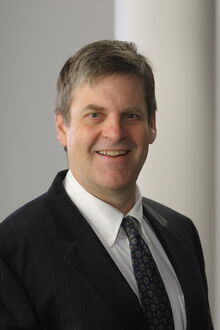
Steve Leigh, associate professor and head of the Department of Anthropology, earned the rank of Fellow of the American Association for the Advancement of Science, for anthropology. Leigh was honored for his contributions to the field of biological anthropology, and particularly for innovative work in the areas of primate growth and life history theory.
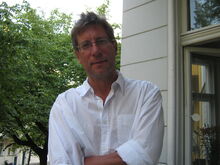
Peter Fritzsche, professor of history, was named a finalist for McGill University's Cundhill International Prize in History for his book, Life and Death in the Third Reich, in which Fritzsche examines how Nazism took hold in Germany. The book was one of three finalists out of more than 170 submissions. Books were judged by their literary, social, and academic impact in the area of history.
October 2008
John Randolph, associate professor of history, received the W. Bruce Lincoln prize for his book The House in the Garden: The Bakunin Family and the Romance of Russian Idealism (Cornell, 2007). The prize is "for an author's first published monograph or scholarly synthesis that is of exceptional merit and lasting significance for the understanding of Russia's past." His book also won honorable mention for the American Association for the Advancement of Slavic Studies' Wayne S. Vucinich book prize for the most important contribution to Russian, Eurasian, and East European Studies in any discipline of the humanities and social sciences.
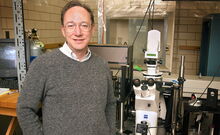
Steve Granick, Founder Professor of Engineering, and professor of materials science and engineering, of chemistry, of chemical and biomolecular engineering, and of physics, was awarded the 2009 Polymer Physics Prize of the American Physical Society. The prize, presented annually since 1960, is one of the highest honors in physical polymer science in the United States. Granick was cited for his “pathbreaking and elegant experiments that elucidate the structure and dynamics of polymers and liquids confined by surfaces.”
September 2008
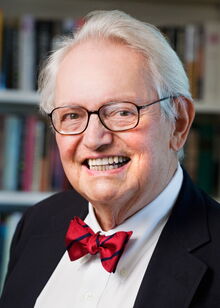
Charles P. Slichter, Research Professor of physics and Center for Advanced Study Professor Emeritus of physics and chemistry, received the 2007 National Medal of Science in physical sciences. He received the award for "establishing nuclear magnetic resonance as a powerful tool to reveal the fundamental molecular properties of liquids and solids. His inspired teaching has led generations of physicists and chemists to develop a host of modern technologies in condensed matter physics, chemistry, biology, and medicine." The National Medal of Science is given to individuals "deserving of special recognition by reason of their outstanding contributions to knowledge in the physical, biological, mathematical, or engineering sciences." Slichter was presented with the award by President George W. Bush on September 29, 2008, in the East Room of the White House.
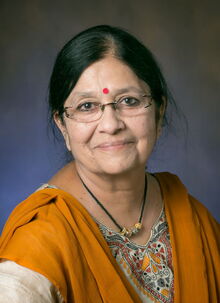
Rajeshwari Pandharipande, professor of linguistics and religion, received the designation of Distinguished Teacher/Scholar for her record of teaching and scholarship. This distinction honors and supports an outstanding faculty member who will take an active role in enhancing teaching and learning on campus. Pandharipande has conducted extensive research and is published widely in sociolinguistics, bilingualism, minority languages and discourse analysis. She teaches courses on Asian mythology, Hinduism, Hinduism in the United States, language of religion, language variation, Sanskrit, and Hindi literature. She serves as a teacher and mentor to a considerable number of international, undergraduate, and graduate students, and is working on a template to teach research methods to large classes of undergraduates.
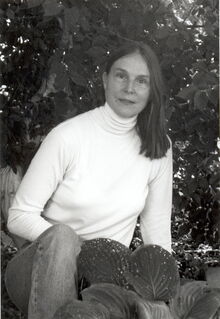
Brigit Pegeen Kelly, professor of English, is the recipient of the 2008 Academy of American Poets Fellowship for a career of distinguished poetic achievement. Created in 1946, the Fellowship is bestowed upon one poet each year. Kelly has been called "one of the very best poets now writing in the United States," and has published collections of poems including To The Place of Trumpets, Song, The Orchard, and Poems: Song and the Orchard.
August 2008
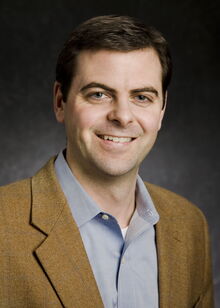
Martin Burke, assistant professor of chemistry, has been named one of the top young innovators under 35 by Technology Review magazine. The TR35 are those from all areas of science whose work is changing the world. Burke was chosen for his work on molecular diversity, which could lead to treatments for diseases such as cystic fibrosis.
Poshek Fu, director of the Center for East Asian and Pacific Studies and professor of history, has been award a Fulbright U.S. Scholar grant for the 2008-2009 academic year. He will be at Shanghai Academy of Social Sciences in China to study the early formation of Chinese film industries and their interconnections with the developments of cultural entrepreneurship, diasporic networks, and global business practice in 20th-century China, Hong Kong, and Taiwan.
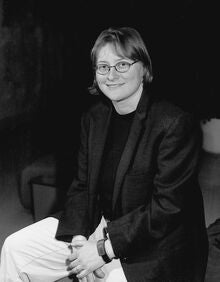
Trish Loughran, associate professor of English, received the 2007 Oscar Kenshur Book Prize from the Center for Eighteenth-Century Studies at Indiana University for her book The Republic in Print: Print Culture in the Age of U.S. Nation Building, 1770-1870. The Kenshur Prize is awarded annually to an outstanding monograph of interest to 18th-century scholars working in a range of disciplines. The prize honors the work of Oscar Kenshur, professor emeritus of comparative literature at Indiana University. Loughran's book offers a material history of the early American nation-state and of early American print culture, challenging the widely held idea that print culture enabled a unified public sphere or national imagined community in the U.S. in the 18th century.
July 2008
Philippe Tondeur, emeritus professor of mathematics, received the Society for Industrial and Applied Mathematics (SIAM) Prize for Distinguished Service to the Profession. Tondeur is being honored for his extensive and highly effective advocacy and support for the mathematical sciences, especially in his creative and dedicated leadership of the Division of Mathematical Sciences at the National Science Foundation. SIAM is an international community of over 11,000 individual members, including applied and computational mathematicians, computer scientists, and other scientists and engineers.
Ted Brown, emeritus professor of chemistry, received the 2008 Harry and Carol Mosher Award from the Santa Clara Valley Section of the American Chemical Society (ACS). The Moser award was established in 1980 to recognize and encourage outstanding work in chemistry, to advance chemistry as a profession, and to recognize service to ACS. Brown's current interests are in the cognitive, philosophical, and social aspects of the scientific enterprise. A new book, Imperfect Oracle: The Authority and Moral Authority of Science in Society, which deals with the social influences of science, is forthcoming with Pennsylvania State University Press. He has held leadership positions as the Vice Chancellor for Research and Dean of the Graduate College, the Founding Director of the Beckman Institute, and President of the Association of Graduate Schools of the AAU universities, among many other positions.
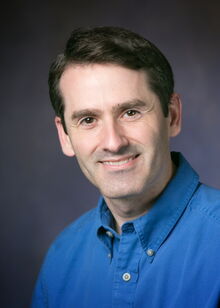
Scott Silverman, associate professor of chemistry, biochemistry, and biophysics, received the 2009 Eli Lilly Award in Biological Chemistry, given by the American Chemical Society's Division of Biological Chemistry. The award was created in 1934 and is intended to stimulate fundamental research in biological chemistry. It is given to candidates under 38 years old who have "accomplished outstanding research in biological chemistry of unusual merit and independence of thought and originality." Silverman was awarded for his research with DNA as a catalyst.
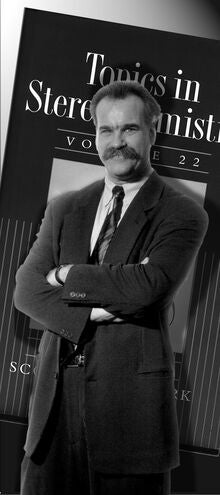
Scott Denmark, R.C. Fuson Professor of Chemistry, has received the Robert Robinson Lectureship from the Royal Society of Chemistry (RSC). "The lecture, which should review progress in any branch of organic chemistry, is given biennially on the occasions of the RSC's Annual Congress." Denmark's research interests lie in structural, synthetic, and mechanistic organic chemistry.
John Hartwig, professor of chemistry, received the RSC Joseph Chatt Lectureship from the Royal Society of Chemistry. The Chatt Lecture is given every two years and should emphasize interdisciplinary work between organic and catalytic chemistry, and inorganic and biochemistry. Hartwig's research aims to discover, develop, and understand new transition metal-catalyzed reactions.
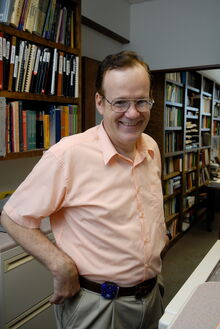
John Katzenellenbogen, professor of chemistry, is the recipient of the Royal Society of Chemistry Centenary Lectureship. The Lectureship was founded to promote the interchange of chemists between Britain and other countries and to fund the annual appointment of three Centenary Lecturers, who would normally visit a number of centers in the British Isles. Katzenellenbogen's research probes the molecular detail and action of steroid hormones, using chemical and spectroscopic tools to understand how these high-affinity binding proteins work and to develop novel medical diagnostic procedures.
June 2008
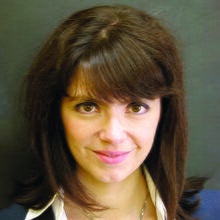
Christina White, assistant professor in chemistry, in addition to numerous industrial awards just announced--the Pfizer Award for Creativity in Organic Chemistry, the Bristol Myers Squibb Unrestricted Grant in Synthetic Organic Chemistry, the AstraZeneca Excellence in Chemistry Award, a 2008 Amgen Young Investigator Award, and the Boehringer Ingelheim Pharmaceuticals New Investigator Award--has just received an Abbott Young Investigator Award. Abbot spokespeople say that "this award recognizes organic chemistry professors who have established a foundation of innovative research and commitment to scientific excellence."
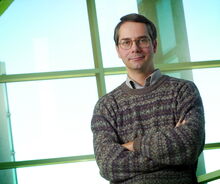
Martin Gruebele, William H. & Janet Lycan Professor of Chemistry, has been elected to membership in the Deutsche Akademie der Naturforscher. The German National Academy of Science (the Leopoldina) is highly selective and the world's oldest academy for medicine and natural sciences, having been created 355 years ago. Currently, it has more than 1,250 members across many countries. Only 21 members were elected worldwide this year with just seven chemists total.
May 2008
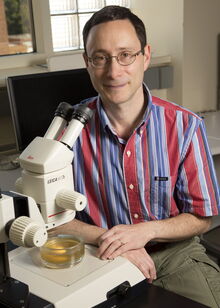
Phil Newmark, professor of cell and developmental biology, has been selected as a Howard Hughes Medical Institute Investigator (HHMII). Newmark's research revolves around the amazing regenerative powers of planarians and focuses on their stem cell biology, germ line development, and neural regeneration and plasticity. Investigators are selected through rigorous national competitions in order to assure the winners have the greatest potential to make important new contributions to science. Once selected, the researchers continue to be based out of their home institution but are supported by HHMI field staff throughout the country and have access to considerable resources.
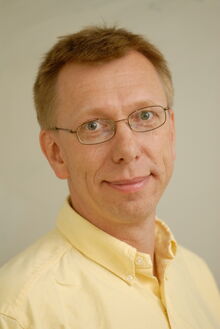
Wilfred van der Donk, professor of chemistry, has been selected as a Howard Hughes Medical Institute Investigator for his noted research in antibiotic discovery and design. Investigators are selected through rigorous national competitions in order to assure the winners have the greatest potential to make important new contributions to science. Once selected, the researchers continue to be based out of their home institution but are supported by HHMI field staff throughout the country and have access to considerable resources.
April 2008
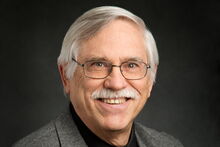
John Lynn, professor of French and military history, was selected to take part in the analysis and celebration of Franco-American friendship in Paris. In 2004, Lynn earned the Palmes Academiques, one of France's highest academic honors, for his work as a historian. The conference, taking place December 12-14 and entitled "Transatlantic Modernity: What is Lafayette's Legacy to Us Today?" coincides with the 250th anniversary of the birth of the Marquis de Lafayette, a strong French military ally to the U.S. during the Revolutionary War.
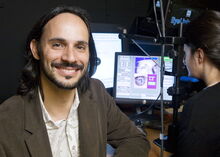
Alejandro Lleras, professor of psychology and Beckman Institute affiliate, received an Early Faculty CAREER Award from the National Science Foundation, an award that supports the early career development of professors who best exemplify the role of teacher-scholars. The $400,000 award will be distributed over five years, beginning in 2008. Lleras' research explores fundamental questions of perception: "How is it that we become aware of visual information and what is it that determines which information we see and attend to, and which information we ignore or suppress?"
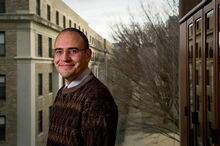
Richard Braatz, Millennium Chair and professor of chemical and biomolecular engineering, was elected a Fellow of the International Federation on Automatic Control (IFAC), a multinational federation of approximately 50 national member organizations concerned with automatic control. "The IFAC Fellow Award is for persons who have made outstanding and extraordinary contributions in the field of interests of IFAC, in the role as an Engineer/Scientist, Technical Leader, or Educator." Professor Braatz studies the control of events at the molecular to nanoscopic scales, with applications in microelectronics, pharmaceuticals, and biomaterials.
Dan Pack, professor of chemical and biomolecular engineering, has been awarded the 2008 Xerox Award for Faculty Research in the College of Engineering. Pack's research involves developing drug and gene delivery systems.
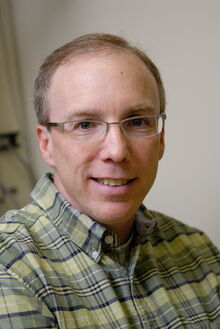
Jeffrey Moore, professor of chemistry, was elected to the American Academy of Arts and Sciences for his pioneering work in self-healing materials and his "fundamentally new way of doing chemistry," involving a novel approach to manipulate matter and drive chemical reactions to a desired end. Moore joins other famous American Academy members like George Washington, Benjamin Franklin, Ralph Waldo Emerson, Albert Einstein, and U of I's own chancellor Richard Herman. See also January.
March 2008
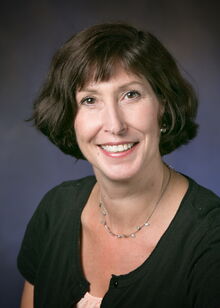
Carol Symes, assistant professor of history and medieval studies, has been awarded the Pinkney Prize, given by the Society for French Historical Studies, for the best new book in French history. Symes's A Common Stage: Theater and Public Life in Medieval Arras, explores how 13th century vernacular plays in the medieval town of Arras fit into a group of public media for communication that both captured and created public opinion in the Middle Ages.
February 2008
Jeffrey F. Gardner, professor of microbiology, was elected as a fellow in the American Academy of Microbiology (AAM). Gardner's research focuses on the genetics and biochemistry of DNA binding proteins. The AAM, an honorific leadership group composed of a rigorously selected group of fellows, is the only group of its kind devoted entirely to microbiologists and the study of microbiology.
James A. Imlay, professor of microbiology, became a fellow of the American Academy of Microbiology (AAM). Imlay has focused his research on the molecular mechanisms of oxidative damage, cellular defenses against oxidants, and obligate anaerobiosis. The AAM, an honorific leadership group composed of a rigorously selected group of fellows, is the only group of its kind devoted entirely to microbiologists and the study of microbiology.
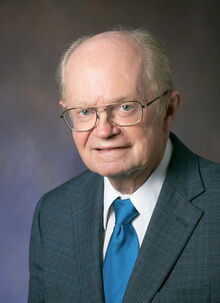
James B. Kaler, professor emeritus of astronomy, has been awarded the 2008 American Astronomical Society (AAS) Education Prize. The prize recognizes Kaler for his outstanding contributions to the education of the public, students, and the next generation of professional astronomers. Specifically, the AAS acknowledges Kaler's contributions to astronomy, inspired teaching and mentoring, engaging astronomy textbooks, popular astronomy website, and work with the public through planetarium, television, and radio programs.
January 2008
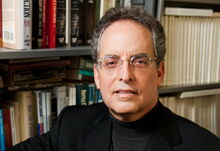
Bruce Levine, J.G. Randall Professor of History, was awarded the 2007 Peter Seaborg Award for Civil War Scholarship, for his book, Confederate Emancipation: Southern Plans to Free and Arm Slaves during the Civil War, which examines various proposals that arose within the Confederate States of America to free and arm its own slaves in order to win the Civil War, the reception that such proposals received, and the consequences of trying to implement one such proposal in the spring of 1865.
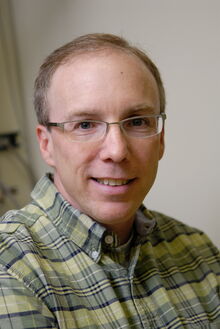
Jeffrey Moore, professor of chemistry, was honored as one of Scientific American's SciAM 50, which recognizes outstanding technological leadership by 50 individuals, teams, or companies, in research business, or policymaking each year. Moore was part of a University of Illinois team honored for its development of self-healing material.
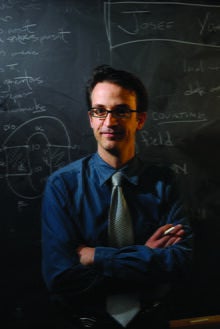
Robert Ghrist, professor of mathematics, was honored as one of Scientific American's SciAM 50, which recognizes outstanding technological leadership by 50 individuals, teams, or companies, in research business, or policymaking each year. Ghrist was recognized for using mathematical tools to solve key problems with networks of distributed sensors.
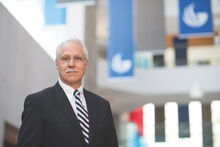
James Weyhenmeyer, professor of cell and developmental biology, neuroscience, and pathology, an affiliate at the Institute for Genomic Biology, and interim vice president for technology and economic development, has has been elected to the Royal Swedish Academy of Engineering Sciences. The academy is an international, independent institution that promotes research and innovation as well as technological and economic development. Its overall mission is to build bridges from Swedish research institutions and businesses to premier research institutions in the U.S. and elsewhere.
Benita S. Katzenellenbogen, Swanlund Professor and Center for Advanced Studies Professor of Molecular and Cellular Biology, has received an honorary degree from the University of Milan, Italy. Professor Katzenellenbogen was recognized for "biomedical research that has advanced our understanding of the actions of estrogens and estrogen receptors in women's health and diseases such as breast cancer."
November 2007
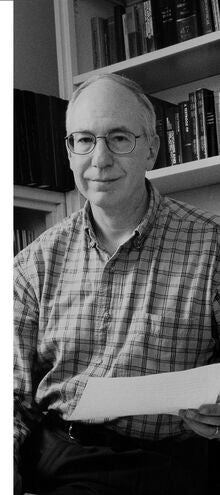
Robert Gennis, professor of biochemistry, biophysics, and chemistry, was invested as a Harry E. Preble Professor. Gennis directs a lab primarily engaged in studying membrane-bound metalloproteins that catalyze electron transfer reactions coupled to the generation of both a voltage and ion gradient across the membrane bilayer.
Maria Todorova, professor of history, was invested as a Gutgsell Professor. Todorova specializes in the history of the Balkans in the modern period. Her current research revolves around problems of nationalism, especially the symbology of nationalism, national memory, and national heroes in Bulgaria and the Balkans.
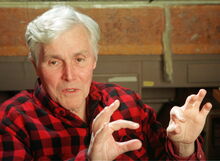
Carl Woese, professor of microbiology, was recognized for his groundbreaking 1977 discovery of a third domain of life, archaea, through the ceremonial unveiling of a historical marker honoring his research. A molecular biologist turned evolutionist, Woese's primary academic concerns center on the bacteria and the archaea, whose evolutions cover most of the planet's 4.5-billion-year history.
October 2007
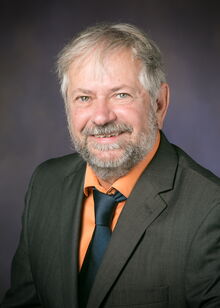
Bob Rauber, professor and acting head of the Department of Atmospheric Sciences, has been recognized by the University Corporation for Atmospheric Research (UCAR) for exemplary service in helping the field of Atmospheric Science gain recognition in Congress.
John Gerlt, professor of biochemistry, chemistry, biophysics, and basic medical sciences, has been named a Fellow of the American Association for the Advancement of Science. Using tools such as sequence analyses, recombinant DNA methods, enzyme kinetics, and physical organic chemistry, Gerlt studies groups of enzymes whose members catalyze different reactions that diverged from a common ancestor. He is using these studies as the basis for predicting the functions of unknown proteins discovered in genome projects.
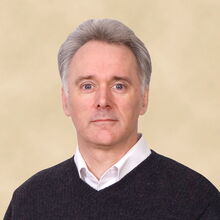
Gregory Girolami, professor and former head of the department of chemistry, has been named a Fellow of the American Association for the Advancement of Science. Girolami and his research group are primarily interested in the synthesis, properties, and reactivity of new inorganic, organometallic, and solid state species.
Steven Huber, professor of plant biology and crop sciences, has been named a Fellow of the American Association for the Advancement of Science. Huber and his lab focus on the identification of biological mechanisms that regulate important plant processes and impact growth and development, including control of nitrate assimilation, intracellular localization of sucrose synthase, and protein kinase specificity.
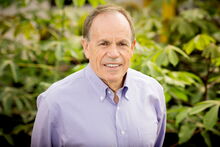
Stephen Long, professor of plant biology and crop sciences, has been named a Fellow of the American Association for the Advancement of Science. Long and his lab primarily research the mechanisms of plant responses to both rising atmospheric carbon dioxide concentration and tropospheric ozone, with particular reference to photosynthesis and relating changes at the molecular and biochemical level to observations of whole systems in the field. See also July.
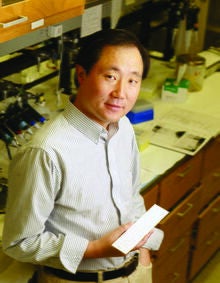
Yi Lu, professor of chemistry and an affiliate of biochemistry, biophysics, materials science and engineering, and the Beckman Institute, has been named a Fellow of the American Association for the Advancement of Science. He was elected for pioneering work in biological inorganic chemistry, particularly for design and selection of metalloenzymes and their applications in catalysis, sensing and nanomaterials assembly.
Ken Paige, professor and head of the Department of Animal Biology, has been named a Fellow of the American Association for the Advancement of Science. Paige's interests lie in plant-animal interactions, with an emphasis on understanding the phenomenon of overcompensation from ecological, physiological, genetic and evolutionary perspectives, and from a conservation genetic perspective, the ecological and evolutionary consequences of small population size.
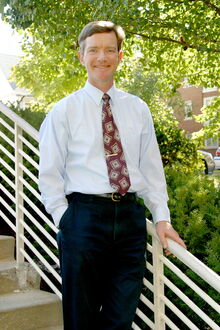
Edmund G. Seebauer, professor of chemical and biomolecular engineering, has been named a Fellow of the American Association for the Advancement of Science. Seebauer's research focuses on discovering new physical mechanisms for controlling the behavior of defects in semiconductors through chemistry at surfaces, stimulation by light, and irradiation by ions. His work also seeks to apply these discoveries to develop new technologies in integrated circuit manufacture and the design of new catalysts for applications in energy production and environmental remediation. See also May.
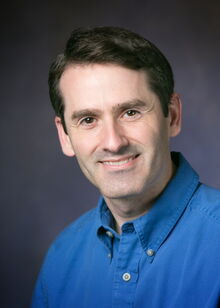
Scott Silverman, associate professor of chemistry, biochemistry, and biophysics, has been named a Fellow of the American Association for the Advancement of Science. Silverman and his laboratory study fundamental and applied aspects of the nucleic acids, DNA and RNA.
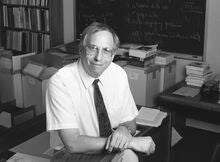
Don Wuebbles, professor of atmospheric sciences and electrical and computer engineering, is being named a Fellow of the American Association for the Advancement of Science. Wuebbles, acting director of the School of Earth, Society, and Environment, is best known for his studies of climate change and effects of human activities on atmospheric chemistry and physics, including the ozone layer. As part of his work, Wuebbles developed the concepts of ozone depletion potentials used in most policymaking cases relative to protection of the ozone.
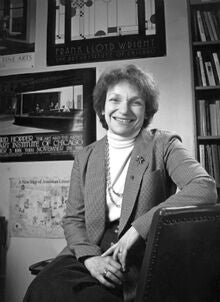
Nina Baym, emeritus professor of English, has received an Andrew W. Mellon Foundation Emeritus Fellowship, an award designed to support faculty who have officially retired but continue to be active and productive in their fields. Baym, a prominent scholar of American literature since the mid-'60s, will use the $23,000 of funding over the next two years to continue her newest book: Women Writers of the Old West, 1832-1927.